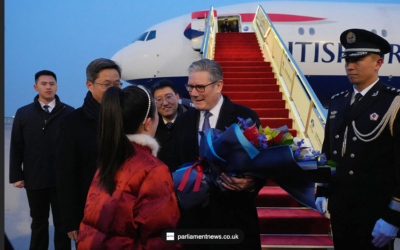In the vibrant markets of Africa, traders have long thrived amidst the rich tapestry of cultures and commerce. However, in recent years, a formidable new challenge has emerged from intensified international competition, particularly from Chinese companies. As these foreign players invest heavily in Africa, they have become dominant forces across diverse sectors, placing local traders under immense pressure.

The Impact on Chinese Companies
Chinese firms have ventured into Africa fervently, investing extensively and establishing themselves as major players in the continent’s economic landscape. From agriculture to manufacturing and construction, their influence reverberates across over 20 African countries. The consequence is undeniable: African traders now find themselves navigating choppy waters as they seek to compete with the lower prices and formidable scale of their Chinese counterparts.
Challenges Faced by African Traders
A key obstacle in the path of African traders is the marked difference in scale. Chinese companies, with their vast resources, can afford to buy goods in bulk, enabling them to offer products at competitive prices that local businesses struggle to match.
Marketing and distribution also present significant hurdles for African traders. With well-established networks of distributors and retailers spanning the continent, Chinese companies enjoy a distinct advantage. In contrast, local traders often face the arduous task of expanding beyond their immediate regions while lacking the necessary resources for robust marketing and promotional efforts.
Turning Challenges into Opportunities
Amidst these formidable challenges, African traders are determined to compete effectively on the global stage. To accomplish this, they are adopting strategic approaches to stand out amidst the competition.
Understanding the competition is a fundamental first step. By studying their international rivals—examining their offerings, pricing strategies, and market presence—African traders gain valuable insights to craft effective strategies and differentiate themselves.
Offering unique products or services is another key tactic to set local businesses apart. By identifying niche markets or delivering high-quality offerings that cannot be easily replicated, African traders can attract discerning customers seeking something special.
Equally vital is the cultivation of strong customer relationships. By providing exceptional customer service and empathizing with their patrons’ needs, African traders can foster loyalty. This loyal following will prove instrumental in navigating the challenges of international competition.
Investing in marketing and promotion is the final piece of the puzzle. Armed with creative campaigns, strategic advertising, and social media, African traders can expand their reach, attract new customers, and build brand awareness.
Chinese Success Stories in Africa
The increasing presence of Chinese companies in Africa is evident from the success stories of key players:
Tianli Group:
This Chinese conglomerate has become a major investor in Africa, with operations spanning diverse sectors, including agriculture, manufacturing, and construction.
Zhongrong Industries:
Having ventured into Africa in 2007, this Chinese steel company now operates multiple steel mills across the continent, supplying a substantial portion of Africa’s steel demand.
China National Petroleum Corporation (CNPC):
As Africa’s largest oil producer, CNPC’s influence extends across over 30 African countries, making it a significant player in the continent’s oil and gas market.

An Ongoing Journey
The competition from Chinese companies is indeed a formidable test for African traders. However, amidst the challenges, lies an opportunity for growth and prosperity. African traders can assert their position in the global marketplace by taking strategic measures, including understanding their competition, offering unique products, nurturing customer relationships, and investing in marketing. The journey is ongoing, but with determination and resilience, African traders are poised to continue flourishing in their vibrant markets.


